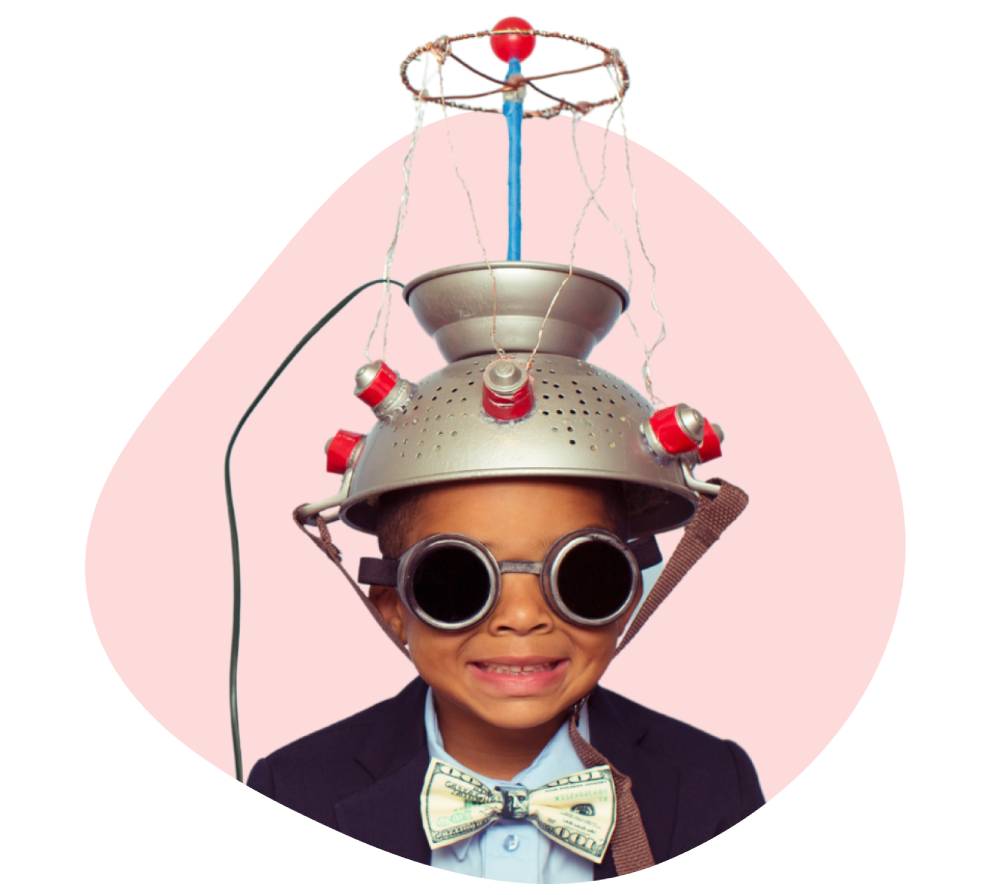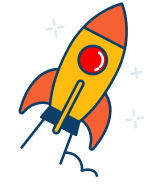
Acceleration Programme 2024

Key Dates:
- May 7th, 2024: Launch of the call for projects.
- June 2nd, 2024: End of the call for projects.
- June 17th, 2024: Publication of the five selected projects to be part of the Acceleration Programme.
- July, 1st, 2024: Start of the programme for participants
- November 21st, 2024: Pitch presentation during the i4KIDS Acceleration Programme 2024 final event

Validation phase – 1st July to 31 st of July 2024
The i4KIDS Validation phase is designed to validate research-stage projects (TRL 2 to 4) by confirming their value proposition through a structured approach comprising the following steps:
- Specialized Training: Participants undergo specialized training covering Intellectual Property, MDR Regulation, Business Models, and Market Access. This training is delivered through a combination of group and individual sessions with mentors.
- GAP Assessment: Using a healthcare innovation cycle methodology, like the CIMIT approach, we conduct a GAP assessment to pinpoint disparities between the current project state and the desired project outcomes. This process enables strategic planning and resource allocation to efficiently bridge these gaps.
Following the Validation phase, a comprehensive analysis will determine the most suitable services for the project’s advancement. The specific list of services will be agreed upon between the i4KIDS team, mentors and participants (Appendix A). This phase will start on 1st of July and conclude on 31 st of July 2024. At the end of the validation phase, the project team should have a clear idea of its strengths and what it needs to work on in the following phase.
Valorisation phase– 16th of September to 21st of November 2024
The i4KIDS Valorisation phase aims to de-risk research-stage projects by increasing their value through the following steps:
- Need/Pain Validation: This step entails a thorough evaluation of identified needs or pain points. It involves engaging clinical and patient focus groups in a rigorous assessment process. Insights obtained from these stakeholders ensure a comprehensive understanding of the challenges being addressed.
- Mentorship accompaniment: Engaging experienced mentors who provide guidance and support tailored to the specific needs of each project, aiding in navigating challenges and maximizing opportunities for success.
- Impact on a workshop through partnering with Impact Hub for workshops to enhance project strategies, encourage collaborations, and increase positive social impact in paediatric healthcare.
- Consultancy services providing access to expert consultancy services in areas such as Regulatory Compliance, Business Planning, Intellectual Property Management, Market Access, Technological Feasibility, Scalability Studies, and Exploitation Strategy. While not all services may be covered by the programme, a thorough assessment is conducted to prioritize the most essential services tailored to each project’s specific needs and maturity level.
- Deck preparation: Aid teams in creating persuasive pitch materials, succinctly conveying their project’s vision, goals, and milestones.
This phase will start in 16th of September and conclude by the end of November, with the final projects being presented during the i4KIDS 2024 Acceleration Programme final event on the 21st of November in Barcelona.

If you are interested in participating in the programme but are not a member of the i4KIDS network, you can contact our i4KIDS team through contact@innovation4kids.org, and our team will evaluate your candidacy for potential adherence to the network.
Current i4KIDS members and research groups:
Hospital Sant Joan de Déu (HSJD)
- Tecnologies de la Salut i Innovació
- Origen dels sarcomes del desenvolupament
- Translational Genomics
- Leucèmia i hemopaties pediàtriques
- Patients Engagement in Research (PERA)
- Malalties Infeccioses I Microbioma
- Neurogenètica i Medicina Molecular
- Medicina metabòlica y mitocondrial
- Enfermedades neurometabólicas de expresión en el SNC
- BCNatal (with Hospital Clínic)
- Neuromonitorització en el pacient crític cardíac
Fundació Sant Joan de Déu (FSJD)
- Epigenètica del Càncer Pediàtric
- Tratamiento del cáncer pediátrico
- Investigación aplicada en enfermedades neuromusculares
- Malalties metabòliques d’origen pediàtric
Universitat Politècnica de Catalunya (UPC).
- Biomechanical Engineering Lab
- BIOART
- Robòtica Intel·ligent i Sistemes
- Intelligent Data Science and Artificial Intelligence IDEAI-UPC
- Speech Acquisition and Perception Group (SAP)
- Reasoning and Infant Cognition Group (RICO)
Universitat de Barcelona (UB)
- Neurociencia cognitiva
- Intelligent Data Science and Artificial Intelligence
- Grup d’investigació sobre aplicacions de realitat virtual i altres noves tecnologies en Psicologia clínica i de la salut
- Neural Development Lab
- Molecular bases of rare brain diseases and channelopathies
Institut d’Investigació Biomèdica de Bellvitge (IDIBELL).
- Stem Cell Potency Group
- Grup de Malalties Neurometabòliques
- Sarcoma Research Group
Unversitat Autònoma de Barcelona (UAB)
- Grup de Sensors i Biosensors
- Tecnologia i aplicació multimèdia i digital als dissenys observacionals (GRID)
- Barcelona Science and Technology Studies Group (STSb)
Fundació Institut d’investigació Germans Trias i Pujol (IGTP).
- Grup de recerca translacional en patologia hepàtica i immunitat innata
Fundació Institut de Recerca Biomèdica (IRB).
- Comparative genomics
- Signalling and Cell Cycle Laboratory
- Complex Metabolic Diseases and Mitochondria
- Cell Division Lab
- Targeted Protein Degradation and Drug Discovery
- Microtubule
- Laboratori de la Traducció Genètica
- Biomedical genomics (BBGLab)
Fundació Institut de Bioenginyeria de Catalunya (IBEC)
- Nanoprobes and nanoswitches
- Biomaterials for Regenerative Therapies
- Nanobioengineering
Fundació Institut en Salut Global Barcelona (ISGLOBAL)
- Grup de Recerca en Epidemiologia i Salut Internacional (GRESI)
Fundació Institut de Recerca de l’Hospital de la Santa Creu i Sant Pau (IR-HSCSP).
- Fisiologia Molecular de la Sinapsi
- Women and Perinatal Health Research Group
- Grup de Recerca en Cures Infermeres
- Servei de Genètica
- Pediatria
Fundació Hospital Universitari Vall d’Hebron – Institut de Recerca (VHIR)
- Childhood Cancer and Blood Disorders
- Neurologia Pediàtrica VHIR
- Grup de Recerca en patología neuromuscular i mitocondrial
Institut d’Investigacions Biomèdiques August Pi i Sunyer (IDIBAPS)
- Diagnòstic molecular
- Neurobiologia dels receptors ionotròpics de glutamat en la salut i la malaltia
- IncaSyM – Integrated Care & Systems Medicine (subgrup 6.04 IDIBAPS)
Institut de Química Avançada (IQAC) del CSIC.
- Nanobiotechnology for Diagnostics (Nb4D)
Universitat Rovira i Virgili (URV).
- PÓLIPO
- Alimentación, Nutrición, Crecimiento y Salud Mental (NUTRCRSM)
- Unitat de recerca en pediatria, nutrició i desenvolupament humà (URPNDH)
- NeuroÈpia – Neurociència Clínica i Epidemiològica
Fundació Privada Centre CIM.
- Fabricació Additiva
Institut Químic de Sarrià (IQS).
- GEMAT: Grup D’Enginyeria dels Materials
Asociación Acondicionamiento Tarrasense – LEITAT
- Health and Biomedicine
Universitat Pompeu Fabra (UPF)
- Full-Body Interaction Laboratory (FuBIntLab) a Unitat Technology, Society and Interaction (TESI)
- BCN MedTech
- Grup de Recerca en Neurobiologia del Comportament (Grenec-NeuroBio)
Hospital Universitari Mútua Terrassa (MUTUA TERRASA)
- Grup de Recerca Interdisciplinar en Malalties Infeccioses MutuaTerrassa (GRIMIMT)
Institut d’Investigació i Innovació Parc Taulí.
- Grup de malalties minoritàries Parc Taulí Institut d’Investigació i Innovació Parc Taulí
Fundació Institut de Ciències Fotòniques (ICFO)
- Super resolution light microscopy and nanoscopy lab
- MEDICAL OPTICS
Fundació Institut d’Investigació Biomèdica de Girona Dr. Josep Trueta (IDIBGI)
- Obesitat i Risc Cardiovascular en Pediatria Institut d’Investigació Biomèdica de Girona
- Centre de Genètica Cardiovascular
- Recerca Metabòlica Materno-Fetal
Fundació EURECAT
- Unitat de Digital Health
Idiap Jordi Gol
- Infància i Dieta Mediterrània (INFADIMED)
Consorci Sanitari Terrassa (CST) – Fundació Joan Costa Roma
- Grup De Recerca En Pediatria
- Grup De Recerca Salut Integral a l’adolescència (Sia)
Josep Carreras Leukaemia Research Institute
- Leucèmia i immuno-oncologia
- Biologia de cèl·lules mare, leucèmia del desenvolupament i immunoteràpia
- RNA regulador i cromatina
- Desenvolupament i malalties limfocítiques
- Organització 3D de la cromatina
Centre Internacional de Mètodes numèrics a l’Enginyeria (CIMNE)
- Computational Bioengineering Group
Universitat de Lleida
- NUTREN-Nutrigenomics
Universitat de Barcelona – IBUB – IRSJD – CIBERER
- Genètica Molecular Humana

- Projects falling within Technology Readiness Levels (TRL) 2 to 4.
- Projects rooted in MedTech, Digital Health, Biotech, or Pharma, situated within the domains of life sciences, health, or well-being.
- Projects dedicated to advancing products and/or services targeting paediatric (from fetal to 21 years old) or maternal health.
- Projects must have a committed team with availability to participate in the acceleration program (including all its activities and phases).

Idea (25%)
- Identification of an unmet clinical need.
- Scientific rationale and solution supported by state-of-the-art knowledge and proof-of-idea results.
Market opportunity (20%)
- Identification and early validation of the market needs.
- Target market characteristics.
- Identification of potential users and customers.
- Competitors and differential value proposition.
Transfer and implementation capacity (15%)
- Current stage of development.
- Intellectual property maturity and strategy.
- Plan for project exploitation.
Impact (20%)
- Economic and social impact.
- Benefit for patients.
Team (20%)
- Experience in the field and roles complementarity of the project team.
- Commitment of the team members to participating in the programme.
If necessary, the evaluation panel may request verification of information provided in the proposals through either in-person or online interactions with the applicants.

Success events include:
- Sale or licensing of the startup or its technology to a third party.
- Revenue generated from the exploitation of technology (e.g., product sales, service provision).
- Completion of investment round.
In case of any successful event, participants are obligated to notify FSJD/i4KIDS. Below are the details regarding profit-sharing:
- If a lump-sum payment equal to or exceeding 300.000€ is received, FSJD/i4KIDS is entitled to the total aid amount (30,000€). Payment to i4KIDS will be made within three months after receiving the payment.
- If a lump-sum payment is less of 300,000€, and/or in the case of recurring payments, FSJD/i4KIDS is entitled to receive an amount equal to two percent (2%) of each recurring payment, up to 30.000€. Payments to FSJD/i4KIDS will be made annually for all recurring payments obtained during the same year, within the first quarter of the following year.
Profit sharing will cease:
- When FSJD/i4KIDS has obtained an amount equal to 30.000€.
- After five (5) years since granting of the aid.

Download: 20240202_i4KIDS ACCELERATION PROGRAMME 2024_Form_Final_EN
Projects submitted after this deadline will not be reviewed. Initially, all proposals will undergo a thorough evaluation to assess their alignment with i4KIDS participation criteria, as well as their relevance to designated areas and fields.
A panel of external experts will evaluate eligible candidates to select five projects for the Acceleration Programme by 17th of June. Notification of selection will primarily be conveyed via the contact details provided in the Project Proposal for the i4KIDS Acceleration Programme, followed by dissemination through i4KIDS communication channels.

This programme entails a commitment to confidentiality from all parties involved, regarding the ideas and information presented, as long as such ideas and information are not lawfully publicized. i4KIDS will always respect the ownership of the industrial and intellectual property of the participating entrepreneurs, as well as the ideas and know-how they contribute.
Your participation in this programme does not imply any concession or transfer of such rights to us.
Data protection and confidentiality
This programme requires all participants to maintain confidentiality regarding the ideas and information shared, until such time as they are lawfully made public.
Participants in the i4KIDS Acceleration Programme may have their images and related materials disseminated on social networks and at events for promotional purposes.
Regarding personal data processing, the five candidates selected will sign a specific data sharing agreement. Each party is responsible for processing the personal data of the other party’s signatories. Contact details for responsible parties are provided in the agreement.

If you have any doubt or question, please feel free to write us at contact@innovation4kids.org